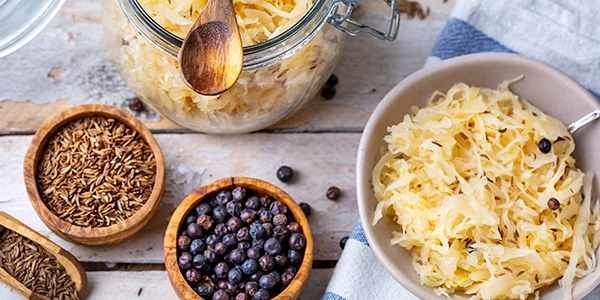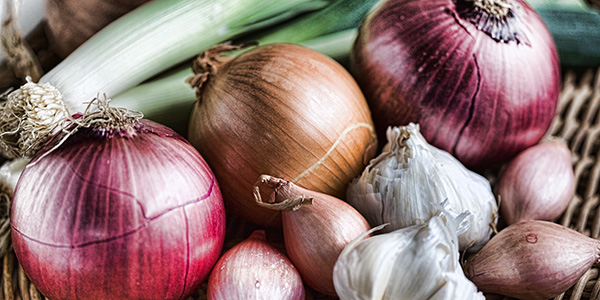Probiotics And Their Effect On Overall Gut Health

Have you heard the terms “gut health,” “microbiome,” and “probiotics” but still don’t really know what they mean? You’re not alone. Nearly half of Americans (47%) in an Ipsos/MDVIP survey said that while the topic of gut health is getting a lot of attention, they can’t tell if it’s real or just fad.
Gut health refers to the functioning of the entire digestive system — the parts of your body responsible for breaking down food into essential nutrients. The digestive tract starts at the mouth and ends at the anus. It’s not a fad. In fact, gut health has a strong correlation to how the rest of your body functions.
Believe it or not, your gut controls inflammation in the body. Interactions between nerve signals, gut hormones, and the bacteria and other microorganisms that live in the gut influence not only gastrointestinal functions, but also inflammatory diseases. There is a gut-brain connection that suggests a link to mental health and possibly neurological diseases.
Probiotics (“good” bacteria that live naturally in and outside the body) and prebiotics (certain plant fibers that promote healthy bacterial growth in your digestive tract) are found in common foods and dietary supplements. A balanced daily diet with a variety of prebiotic and probiotic foods can improve your digestion and impact your overall health.
Probiotics and the microbiome: Friendly bacteria in the gut
There are about 100 trillion microbiota (bacteria and other microorganisms) that naturally live on the body and in the gastrointestinal tract. They form what’s called the microbiome. It’s a system of bacteria, fungi, even parasites, that work together to effect proper body function.
The microbiome is formed in the first years of life but can change over time in response to diet, exercise, medications, stress and environmental exposures. Genetics often affect its composition and diversity.
Microbes are consumed through food and water. Most are destroyed by gastric acids in the stomach. Others move down to the large and small intestines and the colon. Maintaining a healthy balance of good bacteria keeps the bad bacteria from going out of control, helping you stay well.
Diet: Probiotics and prebiotics create a healthy microbiome
The Ipsos/MDVIP survey found that 52% of Americans say they often feel confused by the plethora of information on diet and nutrition. The best way to create the right types and balance of good bacteria in the gut is to follow a diet that contains a variety of both probiotic (live bacteria that confer health benefits when consumed in adequate numbers) and prebiotic (fermentable soluble fiber) foods. Scheduled meal planning helps the microbiota maintain a healthy circadian rhythm.
Probiotics are found in fermented and cultured foods, and in dietary supplements. However, not all fermented or cultured foods are probiotics. Ultra-processing and heating foods to high temperatures destroy the live bacteria. For instance, the bacteria in jarred pickles, canned sauerkraut, sourdough bread and even some brands of yogurt are destroyed in the food manufacturing. The bacteria need to also survive gastric acids in the stomach.
Some brands are labeling products with the term CFU (colony-forming units), which estimates the number of microbial cells in a sample that are viable. There are no current FDA labeling regulations, however, and it is difficult to assess the accuracy of those numbers since conditions can change by the time of consumption.
Probiotic (fermented) foods include:
- kimchi (made from fermented cabbage)
- kombucha (fermented black tea)
- yogurt (made with live and active cultures)
- kefir (made with live and active cultures)
- tempeh (made from fermented soybeans)
- cultured labneh (made with live and active cultures)
- cultured cottage cheese (made with live and active cultures)
- sauerkraut (made from fermented cabbage)
- miso (made from fermented soybeans)
Prebiotics are indigestible plant fibers that act as nourishment and support growth of probiotics (good bacteria) in the gut. Prebiotic foods support digestion, immune function, help regulate bowel movements, stimulate hormones that aid in appetite suppression, and help bone mineralization.
Prebiotic (high fiber) foods Include: 
- cooked and cooled al dente pasta and potatoes
- slightly unripe bananas
- Jerusalem artichokes
- apples
- lentils
- barley
- onions
- garlic
- asparagus
- soybeans
- oats
- ground flaxseeds
- chicory root
- seaweed
A Mediterranean-style diet that is rich in a variety of colorful fruits and vegetables and whole grains and that also includes legumes, nuts, low-fat dairy, seafood and freshly cold-pressed olive oil is the key to a healthful diet.
Polyphenols are phytochemicals with antioxidant properties that are found in fruits, vegetables, tea, coffee, dark chocolate, legumes, grains, nuts, and freshly pressed extra virgin olive oil. Polyphenols can impact the composition of the gut flora and also play an important role in gut health.
A dietary assessment should be considered before starting a dietary supplement. You can ask your doctor for a referral to a registered dietitian to help individualize a diet plan that is right for you.
Stress, daily activity and other lifestyle habits
- Other lifestyle habits have an impact on gut health.
- Excessive alcohol intake decreases the bacteria with anti-inflammatory activity and can result in intestinal damage.
- Smoking upsets the microbiome and has been linked to aggravating ulcerative colitis and Crohn's disease.
- Lack of exercise can cause constipation and leads to poor muscle tone of the bowel. As little as 15 minutes a day may be beneficial.
- Stress affects digestion and decreases nutrient absorption. Meditation, yoga and breath work are effective for stress reduction. One minute of slow and deep breathing several times a day can be helpful.
- Staying hydrated throughout the day, especially when increasing fiber intake, reduces the risk of constipation.
- Eating slowly allows digestive hormones to tell the brain that the stomach is full, which prevents overeating.
Think you know the facts about gut health? Take our quiz.